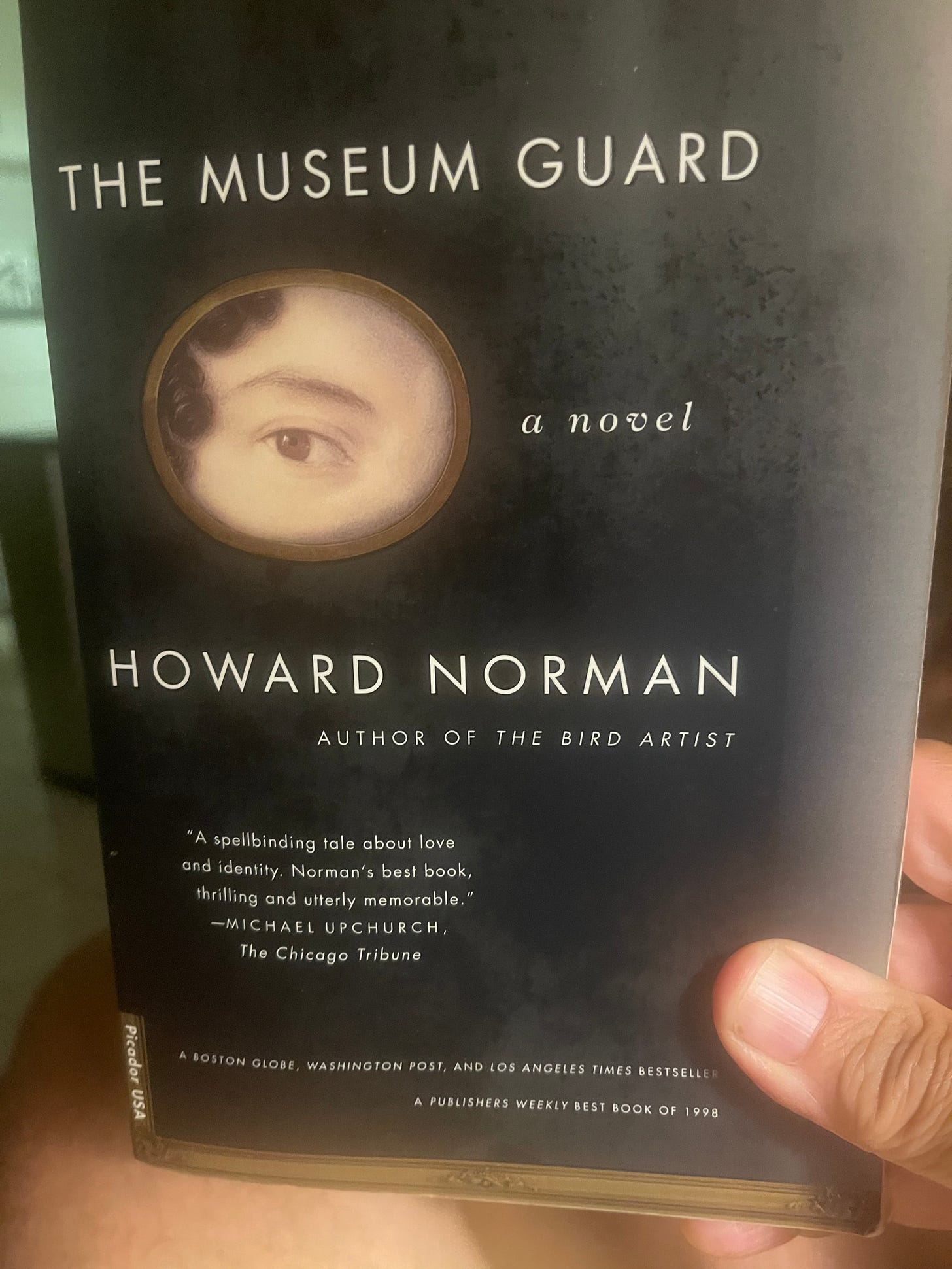Books: “The Museum Guard” by Howard Norman
Back in 2001, I saw a play called “Lobby Hero” written by Kenneth Lonergan. Everything KL writes is good but this play stood out because of its unusual main character: a security guard in an
apartment building. What drama, one wonders, could there be in that?
Lonergan’s portrayal of the everyman as hero sprang to mind while I was reading Howard Norman’s 1998 novel, “The Museum Guard.”
The setting of this page-turner is late-1930’s Halifax, Nova Scotia, where young DeFoe Russet works as a museum guard. He got the job through his incorrigible Uncle Edward Russet, who raised him when DeFoe’s parents were killed in a zeppelin accident several years prior. Edward, also a museum guard, is probably not the best of mentors: he’s an alcoholic of the W.C. Fields variety.
DeFoe’s life changes when he meets and falls in love with Imogen, a young woman who works as a gardener at Halifax’s Jewish cemetery. They bond over the museum’s current exhibition—works by an obscure Dutch artist—particularly a painting entitled “Jewess on a Street in Amsterdam.” The affair takes a strange twist as Imagine begins to imagine she is the woman in the panting.
Meanwhile, Uncle Edward, when he isn’t busy drinking or womanizing, tunes in to nightly radio broadcasts from Ovid Lamartine, a prominent Canadian journalist who is stationed in Europe and who warns his listeners about the latest depredations of Adolf Hitler. All these loose ends are eventually tied up in a thrilling narrative right out of an Alfred Hitchcock movie.
Howard Norman, whose previous books were National Book Award finalists, demonstrates in “Museum Guard” how a great story can be spun from the most unlikely source: a couple of decidedly unremarkable museum guards. Give those guys and ladies a thumbs up on your next visit to the Met. They know a lot more than the location of the nearest restroom.


I love that the main character is a museum guard. They spend hours in one location watching the comings and goings of hundreds of people every day. I bet they see a lot of things most of us don't. Like ourselves.